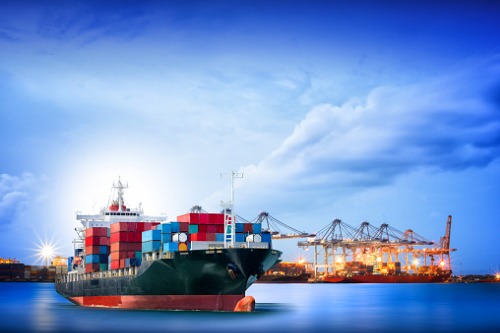UK marine sector set to return to growth by 2025

The UK marine industry, employing more than 61,000 people on shore or at sea, is expected to grow by 2025 but not before contracting in 2024, research from business insurer QBE has found.
According to QBE’s new report Navigating maritime challenges: forecast for the UK marine sector, the marine industry in the UK contracted by 8.5% in 2023. Aside from 2020 when the industry was grappling with the Covid-19 pandemic, this is the sharpest decline for marine since 2016.
The report suggests the industry will decline by just 0.4% this year in 2024 before returning to marginal growth of 0.8% in 2025.
The marine sector and UK economy
The marine sector is a critical component of the nation’s economy, with more than 90% of the UK’s freight leaving or arriving by sea. As such, it is widely considered to reflect the state of the UK economy, with the volume of goods traded and passenger numbers usually acting as reliable economic indicators.
However, UK supply chains could face even more disruption this year as the world’s biggest shipping companies are currently diverting journeys away from the Red Sea as pressure in the region intensifies, adding up to 10 days of shipping and costing millions of dollars.
Rising costs and disruption
Brexit and the conflict in Ukraine have significantly squeezed maritime transport in recent years. Disruption to supply chains and trade flows, and administration burdens linked to sanctions compliance, and customs requirements for trade with EU markets have caused significant delays.
According to the report, shipping firms have been hit by the steep increases in fuel prices sparked by the Russian invasion of Ukraine in February 2022. Output prices of UK fuel manufacturers increased by 66% between 2021Q4 and 2022Q3, before almost falling back to their pre-invasion levels in 2023Q3.
The industry has faced a choice to pass the fuel prices increase on to customers and lower their margins – or increase their prices and risk a decline in demand. Freight and passenger water transport firms put their prices up by 15% and 11% between 2021Q4 and 2022Q3 and have largely left them unchanged since.
It is expected labour issues and regulatory pressures will complicate operations in the coming years, placing additional pressure on maritime routes and supply chains.
Unfortunately, not all firms invest sufficiently in staff training; since 2020, only 0.2% of the maritime transport’s labour costs are spent on staff training.
Ports remain crucial components of UK supply chains, but high-profile strikes have crippled ports in recent years, with resulting reduction in calls to those ports and vessels diverted to alternative locations contributing to congestion.
Kevin Shallow, Director of Marine, QBE Europe said: “The UK marine industry has been hit by Covid-19, the Ukraine conflict and now we are facing conflict in the Red Sea. While headwinds are expected in 2024, opportunities remain.”
“The UK shipping community needs to ensure risk assessments are thorough and accurately identify potential perils of the sea. Training, contingency plans and emergency response procedures can all help minimise risk and help the UK’s marine industry return to growth by 2025 and beyond.”
DOWNLOAD REPORT HERE
Authored by QBE





